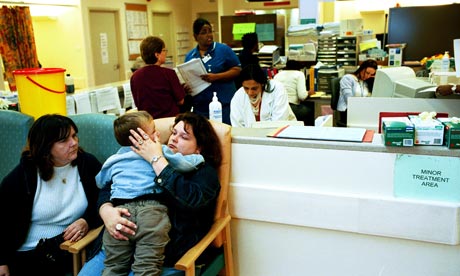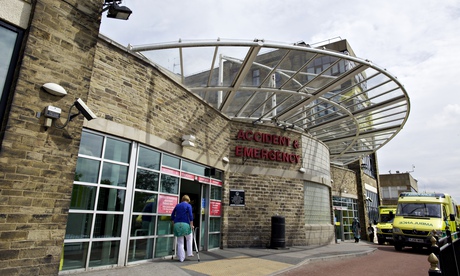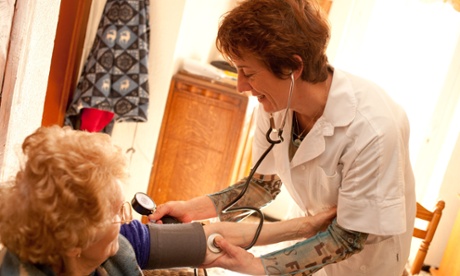I usually make house calls on a Friday afternoon, seeing some of our older, housebound patients. Mr A is an insulin-dependent diabetic who has been unwell with vomiting and a urinary tract infection for a few days. He has been on antibiotics but is making slow progress. He is unable to keep fluids down and his blood sugar levels have been so low that I have cut down his insulin dose. When I see him at around three in the afternoon, he appears fatigued and dehydrated. His blood pressure is low and I decide that he needs intravenous drips, which, as a GP, I can't do.
I struggle to speak to someone in the hospital as the phone lines are busy. When I finally get through, I refer him for a medical admission, but there is no bed on the medical admissions ward, so he has to first go to A&E. I have no choice but to admit him to hospital. The nearest "safe haven" bed with nursing support and access to drips – set up to avoid admission to an acute hospital – is not available that evening. I know nursing home placements can take weeks or even months to organise. I explain all this to Mr A and his wife and they reluctantly get ready to go to hospital while I call the ambulance.
As GPs, our hospital referral rates are constantly being scrutinised. The aim is to avoid any "unnecessary" attendances. But though, in theory, it makes perfect sense for patients to receive their treatments in the familiar, and often more comfortable, surroundings of a GP surgery, it begs the question: is quality of care being compromised to make NHS savings?
I agree that, unless it is an "accident" or an "emergency", no one should have to go to A&E. Waiting for hours to see clinicians who are working in pressured surroundings, often with no access to old medical notes, is not ideal.
Problems arise when illnesses that GPs class as minor – sore throats, coughs and minor urinary infections, which could be treated by us the next day – seem more serious to patients, who take themselves off to hospital. There are NHS initiatives to encourage patients to see their GPs first, but lack of GP appointments in overstretched areas, and even living close to an A&E, are cited as common reasons for attendance.
Mr A was discharged in the early hours of Saturday feeling much the same. Many NHS trusts have reduced the number of in-patient beds, and doctors are encouraged to promptly discharge patients. He received daily, close monitoring from GPs and community nurses for a week, but declined any further hospital admissions. He lost a lot of weight and remained very frail, so much so that he fell and fractured his hip a few weeks later. He is now on an orthopaedic ward awaiting surgery.
Mr A should either have been kept in hospital longer and treated when I referred him, or – if GPs are expected to plug the gap between hospital and community settings – more district nurses, community matrons, midwives and social workers are needed. Only then can Mr A and thousands like him start to cost the NHS less in the long term.
• Zara Aziz is a GP partner in a practice in north-east Bristol. She is part of the local GP consortia group











